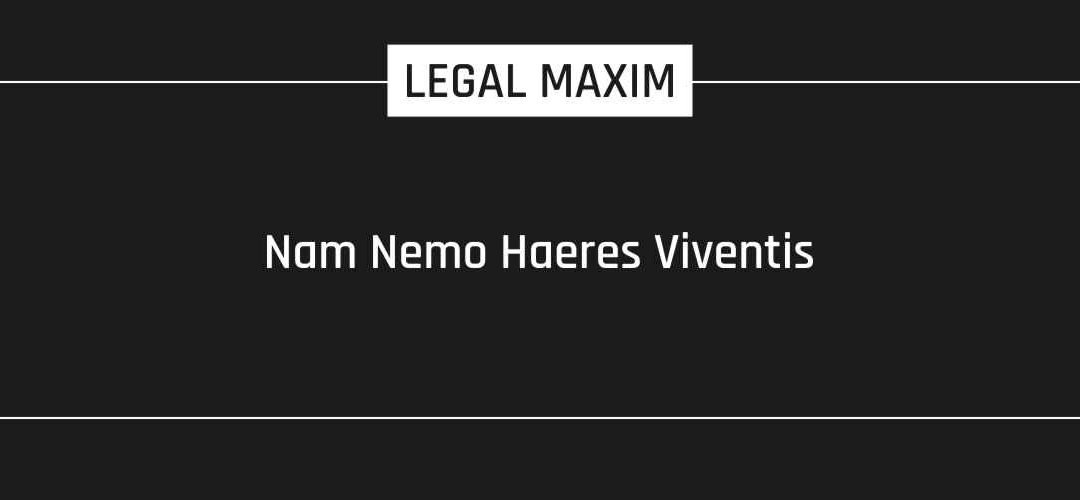Origin
Latin
Literal Meaning
No one is heir of a living person
Explanation
Only when the ancestor dies, does an individual become an actual, complete heir to another. His / her father or other from whom he/she inherits must be deceased before a child may become an heir. According to the proverb, nemo est haeres viventis, the living children are expectant only descendants, and thus no one will take an estate under that title whilst the ancestor remains. When a will is made by the testator it is his intention that what will be done to his property after his death and thus it decides who will be his heir and because of this until death, nothing can be ascertained?
Illustrations
A is the father of his only son B and through the maxim Nam nemo haeres Viventis B can be his legal heir but does not become complete heir till A dies.
Case Laws
In Illinois Co. vs. Bosworth, there were only 2 children surviving of Mr. Bosworth to recover a certain portion of land in New Orleans. The land belonged to his father and that was seized due to some illegal activities by the father. On petitioner claiming the land, the Supreme Court of United States used the maxim nam nemo haeres viventis for the 1st time in this case and held the claim of the petitioner illegal.
In Krishna Kumar Birla vs. Rajendra Singh Lodha, the deceased industrialist Birla executed several wills and at last will in 1999 bequeathed his properties to the respondent Rajendra Singh Lodha thereafter the caveat was filed by the appellants opposing the will as they were his legal heirs.
The court has referred to S.2(h) with the maxim and nam nemi haeres viventis that there is no heir until the death of a person and he has executed a will so the properties belonged to the name mentioned in the will.
In Shamsudin vs. Abdul Hoosein If the heir apparent made a settlement of the property before the death of the propositus and got the money on the account that he would not have a claim in the share. He cannot make that transfer as he is not the legal heir by the maxim Nam nemo haeres viventis because the legal owner of the property is still alive and the transfer was held to be void by the top court.
This maxim has been written and submitted by Mr. Nikhil Punshi during his course of internship at B&B Associates LLP. Mr. Nikhil is a third-year law student at the Hidayatullah National Law University, Raipur.
